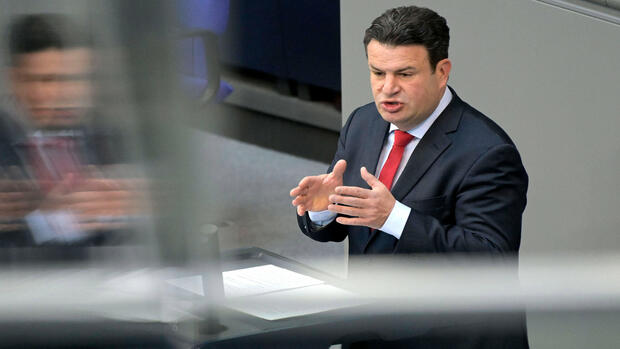In the 2021 coalition agreement, the SPD, Greens and FDP agreed to make the award of public contracts dependent on companies paying according to tariffs.
(Photo: IMAGO/Future Image)
Berlin Federal Minister of Labor Hubertus Heil (SPD) only wants to award federal contracts worth more than 10,000 euros to companies that pay according to collective agreements. This provides for a draft by his ministry for the planned Federal Tariff Loyalty Act, about which the Reuters news agency reports. According to the draft, contractors and their subcontractors or commissioned lenders would have to document that they kept their collective bargaining promise.
At the request of a trade union or an employers’ association, the ministry will set binding working conditions for the execution of public contracts by statutory order, insofar as these have been agreed in a collective agreement between the applicants. This affects, among other things, remuneration and minimum vacation as well as maximum working and rest times.
Heil had recently announced that he would present a draft law by June that stipulates adherence to collective bargaining agreements in the federal government. The draft is still being worked on in the ministry of the SPD politician, formal coordination with other ministries has not yet been initiated. First, the editorial network Germany reported on the draft.
In the 2021 coalition agreement, the SPD, Greens and FDP agreed to make the award of public contracts dependent on companies paying according to tariffs. “In order to strengthen collective bargaining, federal public procurement is tied to compliance with a representative collective agreement for the respective industry, with the award being based on a simple, unbureaucratic declaration,” it says.
The coalition wants to achieve that more employees fall under collective agreements. Collective bargaining coverage has been steadily declining for many years. According to the Federal Statistical Office, industry or company collective agreements applied to around 54 percent of employees in western Germany in 2021, which was 22 percentage points less than in 1998. In the east, collective bargaining coverage for employees fell from 63 to 45 percent.
More: Attracting more founders from abroad: Employers are demanding start-up visas
